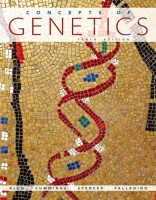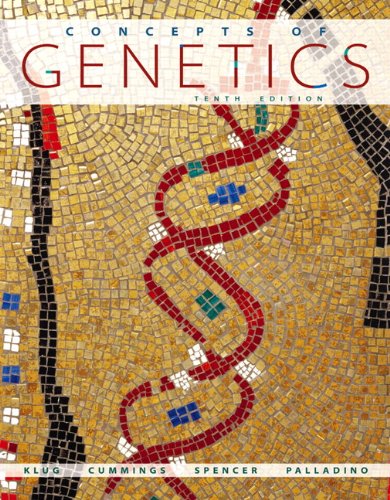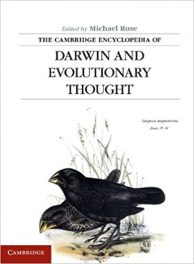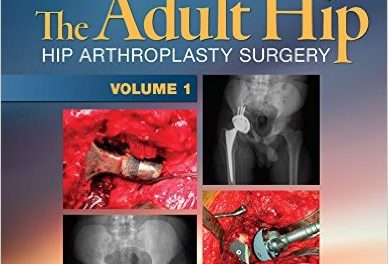 Authors: William S. Klug, Michael R. Cummings, Charlotte A. Spencer, and Michael A. Palladino
Authors: William S. Klug, Michael R. Cummings, Charlotte A. Spencer, and Michael A. Palladino
Publisher: Pearson – 742 pages
Book Review by: Deekay Daulat
Note: This book comes packed with MasteringGenetics with eText Online Access Card
This book is known for the authors’ emphasis on problem solving. This approach goads students to use their newly-acquired knowledge and skills to find solutions to problems they will face in their careers.
Four features of this textbook set it apart from others on genetics:
- Conceptual Understanding – the book’s conceptual focus emphasizes the fundamental ideas of genetics, helping students comprehend and remember the key ideas.
- New and Updated Content – this edition has been thoroughly updated to include the latest discoveries that students need to know about.
- Problem Solving – this book’s problem-solving emphasis encourages students to apply their acquired knowledge and fine-tune their analytical skills.
- New! – Practical Problem-Solving with MasteringGenetics – this book is now available with MasteringGenetics, a powerful online learning and assessment system proven to help students learn problem-solving skills.
To help students learn based on the four-point approach outlined above, this book goes few levels deeper by providing examples and exercises.
So in the first – conceptual understanding – area – key concepts are listed within chapter openers to help students focus on the core ideas of that chapter. Then, the key concepts are revisited in greater detail in the end of the chapter
In the authors’ effort to accomplish the second objective – present new, updated content – four new mini-chapters which are on special topics in modern genetics – have been added to this edition. These explore cutting-edge areas, including Epigenetics, Genomics and Personalized Medicine, Stem Cells, and DNA Forensics.
With reference to the third feature mentioned above- problem-solving the Now Solve This problems are expanded to include the complete problem statement, and are integrated throughout each chapter to help students test their knowledge.
Lastly, to encourage the use of online resources, the authors provide in-depth tutorials online. These are focused on key genetics concepts, and reinforce problem solving skills with hints and feedback specific to students’ misconceptions. Tutorial topics include pedigree analysis, sex linkage, gene interactions, DNA replication, and more.
This unique book provides extensive coverage of many areas of genetics within its 26 chapters laid out through nearly 750 pages. But to give you a broad overview of what you will find within it, these are the five main Parts in this book:
- Genes, Chromosomes, and Heredity
- DNA: Structure, Replication, and Variation
- Gene Expression, Regulation, and Development
- Genomics
- Genetics of Organisms and Populations
The authors, all experienced professors, with their brief backgrounds mentioned below, have provided a vast amount of material and their deep insights. We commend them here for producing such an important and valuable book.
William S. Klug is Professor of Biology at The College of New Jersey (formerly Trenton State College) where he served as Chair of the Biology Department for 17 years. He received his BA degree in Biology from Wabash College in Crawfordsville, Indiana, and his PhD from Northwestern University in Evanston, Illinois.
Michael R. Cummings is Research Professor in the Department of Biological, Chemical and Physical Sciences at Illinois Institute of Technology in Chicago, Illinois. For more than 25 years, he was a faculty member in the Department of Biological Sciences and in the Department of Molecular Genetics at the University of Illinois at Chicago. He received his BA from St. Mary’s College in Winona, Minnesota, and his MS and PhD from Northwestern University in Evanston, Illinois.
Charlotte A. Spencer is a retired Associate Professor from the Department of Oncology at the University of Alberta in Edmonton, Alberta, Canada. She has also served as a faculty member in the department of Biochemistry at the University of Alberta. She received her BSc. In Microbiology from the University of British Columbia and her PhD in Genetics from the University of Alberta.
Michael A. Palladino is Dean of the School of Science and Associate Professor in the Department of Biology at Monmouth University in West Long Branch, New Jersey. He received his BS degree in Biology from Trenton State College (now known as The College of New Jersey) and his PhD in Anatomy and Cell Biology from the University of Virginia.







